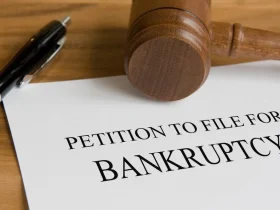Pornography addiction can be a difficult problem to manage, but when co-occurring disorders are involved, the challenge becomes even more complex. Co-occurring disorders refer to two or more mental health conditions that occur at the same time. When someone is struggling with both pornography addiction and a co-occurring disorder such as depression or anxiety, it makes managing these issues much harder. It’s important for those affected by this dual challenge to understand how to address both problems simultaneously in order to achieve a full recovery and improved well-being.
In this article, we will explore ways of dealing with pornography addiction and co-occurring disorders together and provide tips on seeking professional help and support from loved ones. We will also discuss the importance of understanding how these issues affect each other and recognizing when professional help is necessary.
Recognizing the Signs and Symptoms of Pornography Addiction
The first step in addressing both pornography addiction and co-occurring disorders is understanding the signs and symptoms of each. Pornography addiction can manifest itself through preoccupation with pornographic material. This means that the individual may be spending excessive amounts of time viewing, downloading, or discussing pornographic material.
Another common sign of pornography addiction is difficulty controlling the behavior, meaning that even though the individual may recognize that their actions are causing them distress or harming other aspects of their life, they cannot stop.
Other signs and symptoms can include relationship problems, financial difficulties, and social isolation. These can be especially difficult to manage when co-occurring disorders are present.
Recognizing the Signs and Symptoms of Co-Occurring Disorders
It can be difficult to differentiate between signs of a co-occurring disorder and those of pornography addiction, so it is important to be aware of the symptoms associated with both.
As mentioned earlier, co-occurring disorders may include depression or anxiety. Signs and symptoms of these conditions can include persistent feelings of sadness, low self-esteem, difficulty concentrating, feeling overwhelmed by stress, and changes in appetite or sleeping habits. If any of these signs are present alongside pornography addiction, it is important to get help from a mental health professional as soon as possible.
Seeking Professional Help and Support from Loved Ones
Seeking help for a pornography addiction and co-occurring disorders in Arizona or elsewhere is essential for recovery. Professional help can help individuals struggling with this dual challenge develop effective coping strategies, create a plan for managing their addiction, and help them learn how to manage their co-occurring disorder in an effective way. It is also important to involve loved ones in the treatment process, as they can provide support and help to maintain motivation.
There are a variety of treatment options available for those suffering from pornography addiction and co-occurring disorders. These may include individual, group, or family therapy sessions, support groups, or self-help programs such as 12-step programs. It is important to find a program tailored to the individual’s needs to ensure the best outcome.
Tips for Dealing with Pornography Addiction and Co-Occurring Disorders
Although it can be challenging to manage both problems at once, there are some helpful tips for those struggling with this dual challenge. First and foremost, it is essential to be honest about the addiction and any associated mental health conditions. Openly communicating with a therapist or loved ones can help create a safe space to talk about the issues and work on recovery in a healthy and supportive environment.
Additionally, setting realistic goals for recovery and breaking them down into manageable tasks can help motivate and keep track of progress over time. When one is feeling overwhelmed, it is important to remember that help and support are available.
Lastly, practicing self-care is an important part of the recovery process, as it can help alleviate stress and provide a sense of control during this difficult journey.
These tips can help individuals struggling with pornography addiction and co-occurring disorders move forward in their recovery. Although the process may be long and difficult, it is possible to overcome this dual challenge with help from professionals and support from loved ones. With help and commitment, individuals can begin to build a more positive future for themselves.










